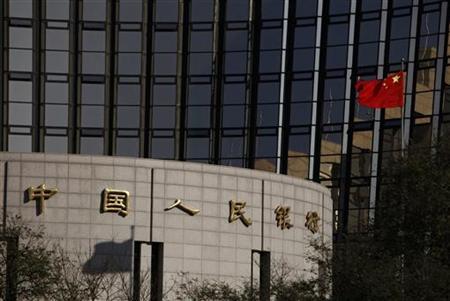(Reuters) – China will continue to invest in euro zone government debt and it remains confident in the euro, the country’s central bank governor said on Wednesday, while calling on Europeans to produce more attractive investment products for China.

Zhou Xiaochuan admitted that China and other emerging nations likeBrazil, Russia or India were waiting for the right time to help the bloc, after a European Union state visit was once again met with encouraging words but no concrete public commitments on fresh funding from China.
But he also suggested Europe needed to work harder to entice Beijing to part with its capital.
“We also hope that the euro zone and EU can innovate their mechanisms to offer new products that are more helpful for Sino-Europe cooperation,” he said.
The central bank governor reiterated previous comments from Premier Wen Jiabao that China was ready to play a bigger role in solving Europe’s debt problems, noting China had not cut its reserves exposure to the euro zone.
“At the G20, our state leaders promised European leaders that, amid the global financial crisis and the Europe sovereign debt crisis, China will not cut the proportion of euro exposure” in its reserves, Zhou said in a speech at the University of International Business and Economics in Beijing.
“Some people had cast doubt or suspicion over the currency, but for the People’s Bank of China, we have always been confident in the euro and its future,” he added.
Although Zhou’s comments largely underlined China’s established stance, the remarks helped push the euro higher and were cited in markets for supporting stocks buying in Asia.
Vice Finance Minister Zhu Guangyao, who is visiting the United States with leader-in-waiting Xi Jinping, also sought to reassure Europe of China’s support.
“China’s commercial investment in Europe has continued, under the principles of safety, liquidity and appropriate returns,” he said.
“We have not adjusted out investment structure. That, it should be said, has been China offering its true trust and support at a crucial moment in European countries addressing their sovereign debt problems,” he said.
Any bigger role in solving the debt crisis would be via the International Monetary Fund and the European Financial Stability Fund, or EFSF, Zhou said, echoing Wen’s comments.
“We strongly believe European countries can work together to handle the challenges. They are able to solve the sovereign debt crisis,” Zhou said.
“The PBOC firmly supports the ECB’s recent measures to address the difficulties.”
Verbal reassurances from Zhou and senior Chinese leaders come as European Council President Herman Van Rompuy and European Commission President Jose Manuel Barroso are visiting Beijing for a China-EU summit.
Van Rompuy assured his Chinese hosts that they should not underestimate the strong political incentive to keep the euro zone intact.
The summit had been delayed from late last year as European leaders struggled to deal with an escalating debt crisis.
NOT A WHITE KNIGHT
China, with $3.2 trillion worth foreign exchange reserves at hand, is seen as having the potential financial firepower to bail out some European governments.
Analysts estimate that about a quarter of China’s foreign reserves are held in euro-denominated assets.
Beijing has been consistently reluctant to make firm financial commitments, although it has repeatedly said it supports a stable euro.
The head of China’s sovereign wealth fund said on Monday that hard assets are more attractive than European government bonds.
Chinese leaders have expressed alarm at protests and strikes sweeping Europe, while lauding a fiscal agreement to be signed in March that will build up a massive fund to backstop European debt.
“We believe the fiscal agreement will mark a big step toward closer economic and fiscal union, which will significantly boost EU member countries’ fiscal sustainability and improve the sovereign debt conditions,” Zhou said.
China and other countries beyond the 17-country euro bloc want to see its members stump up more money before they commit additional resources to the IMF, which had requested an additional 500 billion euros in funding.
The European Stability Mechanism (ESM), a 500-billion-euro permanent bailout fund that is due to be operational in July, is expected to replace the EFSF, a temporary fund, which has been used to bail out Ireland, Portugal and will help in the second Greek package.
Detailed policies and reforms to be launched by Europe can serve as “platforms” for China and other BRICS countries to help Europe, Zhou said.
(Additional reporting by Chris Buckley in Washington; Writing by Lucy Hornby and Zhou Xin; Editing by Jacqueline Wong and Neil Fullick)


